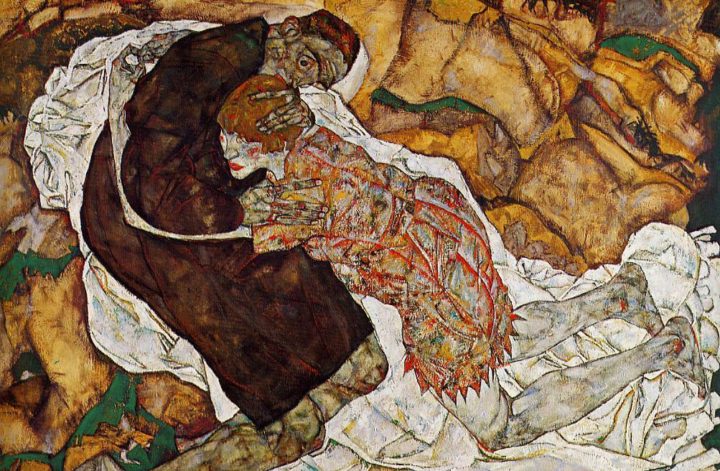My nanny, Antonia, was as ugly as was lovely and intelligent. I can assure you she was extraordinarily brilliant and had a heart of gold. In her later years, she lived in a respectable home for older people, where strange things sometimes occurred.
I often visited, spending a few hours with her. Despite her poor health, we laughed as she more and again recounted stories about my mother as a child and my grandparents, who had hired her as a maid in 1926 when she was just twelve. She never left, staying with them throughout her life and bringing her husband Luigi into the family after marriage.
It’s interesting to say that my grandfather was a high-ranking officer, a World War One veteran, and a convinced fascist. The nanny’s husband was a self-declared communist whose typical expression was: “I was born communist, and I’ll die as a communist,” disregarding the very fact he was living and working for the city’s fascist Mayor. He was much older than my nanny and an uneducated, not-too-smart man. They shared good feelings and generosity. And they were both ugly, so they probably liked each other. Even my fascist grandfather greatly liked him, and they both sincerely respected each other, often concluding they shared more political ideas than they expected. My grandfather welcomed him as another family member. The nanny desired to have a child of her own, but her husband passed away after a few years, just before World War Two.
Even the sad and dramatic moments of family life — of which there were quite a few, especially during World War Two — were recounted lightly in her stories, reflecting more satisfaction in having overcome them than the pain they caused. She had a knack for finding the comic side of people and life while downplaying the dramatic side, which she also acknowledged. She addressed my grandparents with humor and irony despite their roles as her employers. She held a respect for them that stemmed from genuine affection, which they returned bigheartedly. Added to this was her gratitude for being taken into their home as a maid, saving her from deep material and moral poverty. Antonia accepted her different social status — even too much, in my opinion — but expressed her views with modest firmness when necessary. Antonia adored both my grandparents but had a different approach to them. She was reserved and formal with my grandmother Maria; with grandfather Saverio, they often acted as a comedian duo, making fun of each other and causing everyone to burst into laughter.
As a maid, she was often seen as inept. Her laziness was notorious; she didn’t cook, and her cleaning was so poor that another helper had to be hired every three months to maintain a decent standard. However, she devoted herself diligently to shining shoes, creating the false reputation that no one could polish shoes as well as she could. This clever approach my grandparents concocted validated her status within the household.
Antonia joined the family when my mother was born and followed her growth, even attending her educational milestones. Although she had only completed the third grade, living with my grandparents helped her learn to speak perfect, polished Italian. She impressed guests while (lazily) serving them at the table. Nevertheless, she continued to talk in dialect without using her elegant language mastery when not necessary.
There was one memorable occasion when she was taken to the doctor — who happened to be the father of the famous conductor Riccardo Muti — because of an ailment. The doctor spoke to her in dialect, and she responded in perfect Italian. So convinced was he that she didn’t understand Italian that he felt it necessary to translate for my grandmother. We laughed about this story each time she shared it, telling it with humor and without any sense of revenge or pride; her defining trait was pure goodness.
Many of my childhood memories revolve around her, even when they include my grandparents and mother. Above all, my nanny loved and pampered me. She could make me laugh even after I had been crying over some childish nonsense.
She moved to the nursing home when diabetes left her nearly blind and unable to walk. Despite her condition, she infused everyone around her with elegant and wholesome cheerfulness when I visited.
Once, she recounted the time her legs were amputated due to diabetes. Immediately after the surgery, a weird visitor approached her, insisting that a funeral was mandatory and ritual for her amputated limb. Naturally, he requested money for the ceremony and a proper burial for the severed leg. Nanny engaged him, discussing the ceremony’s details and the date and even negotiating a price. Afterward, she reported him to the Police, who discovered that other elderly residents had fallen victim to similar scams.
Note: I remembered this episode while reading Dostoevsky’s The Idiot, in which General Ivolgin recounts a similar episode. It allowed me to reflect on my nanny, who passed away shortly before the beginning of this century.



